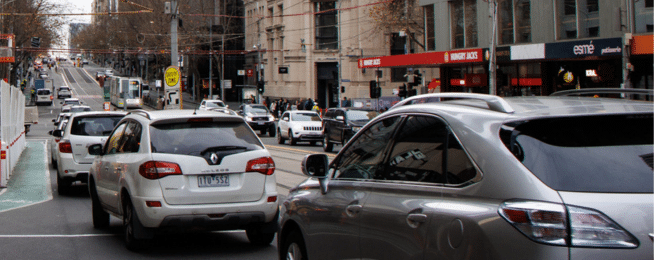The federal government has released proposed settings for strong fuel efficiency standards, a long-awaited policy shift that will be instrumental in cleaning up the transportation sector.
Australia, along with Russia, remains one of the only advanced economies in the world without a fuel efficiency standard. This has made the marketplace for cars in Australia a haven for automakers looking to offload dirtier vehicles that can’t be sold elsewhere.
The result of this is a transport sector brimming with highly-polluting cars that are driving up transport emissions and contributing to poor air quality. University of Melbourne research has found that air pollution from cars, trucks and buses can cause of up to 11,100 deaths each year.
Inefficient fuel is also costing Australian drivers at the pump. Research from The Australia Institute suggests that if fuel efficiency standards were introduced in 2016, drivers would have saved $5.9 billion in fuel costs.
The New Vehicle Efficiency Standards will set a maximum average level of carbon emissions for a manufacturer’s fleet of new cars. This incentivses production of lower and zero emissions vehicles and penalises automakers who overshoot the cap.
The government has released three options for the scheme. Option A is described as “slow start” and is the least disruptive approach. Option B is “fast but flexible,” designed to balance ambition and achievability, while Option C is a “fast start” that would facilitate the quickest transition. This final option would result in greater emissions abatement, but also higher costs.
The government’s preferred approach is Option B, projected to abate 369 million tonnes of CO2 by 2050.
It says this would catch the country up to the fuel efficiency standards of the US by around 2028, and save Australians around $1000 per vehicle per year on fuel.
The government is seeking feedback from the community on the proposed settings. You can have your say and read the full impact analysis here.
The Climate Council has urged the government to move swiftly through the final design stage and implement the long-overdue laws. It has also made its own set of recommendations including, among other things, its preference of a “start strong” approach, or one that sets the same emissions trajectories for passenger cars and commercial vehicles.
You can read the full Climate Council submission here.
Or become our friend and subscribe to receive our fortnightly newsletter.


